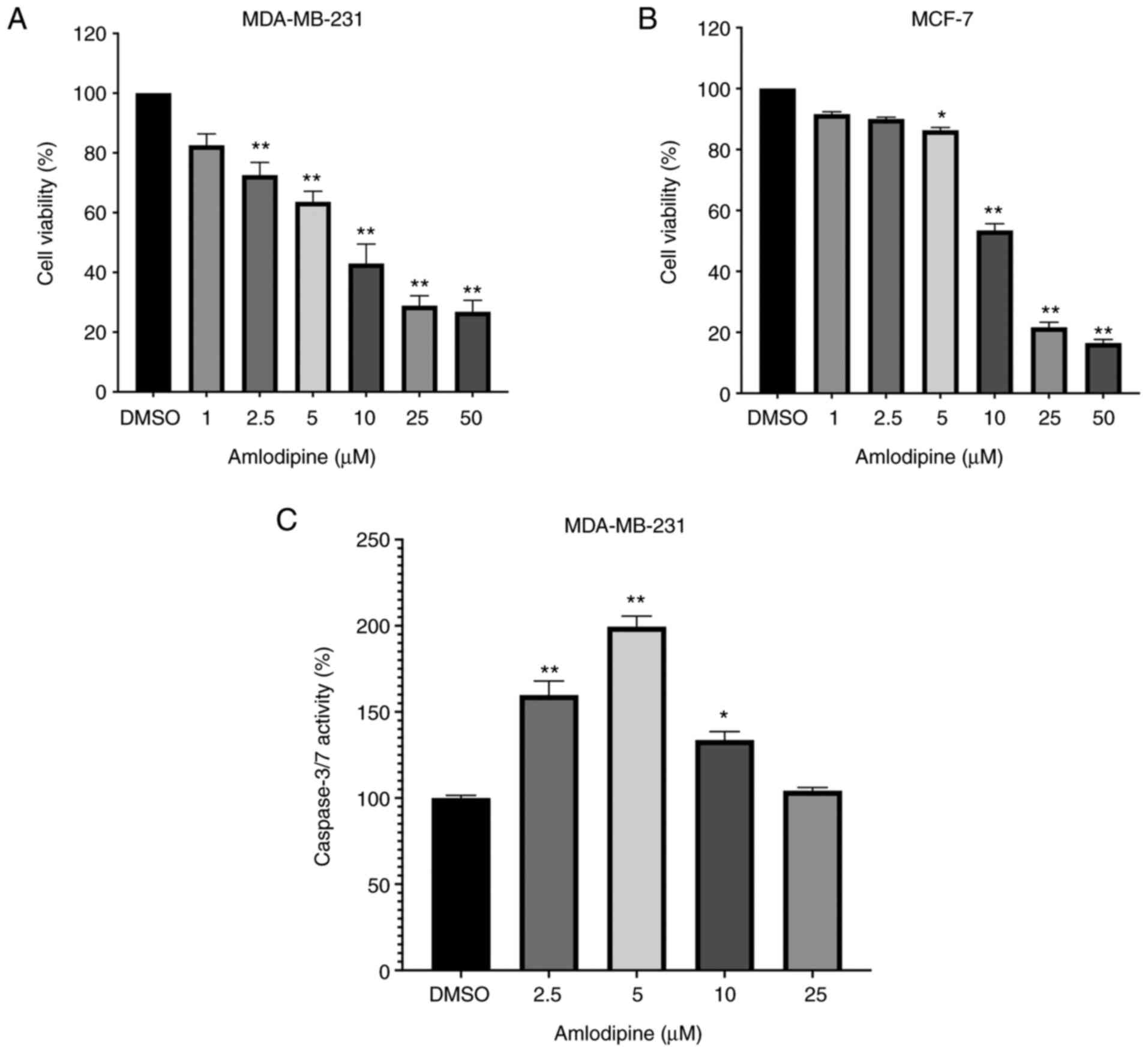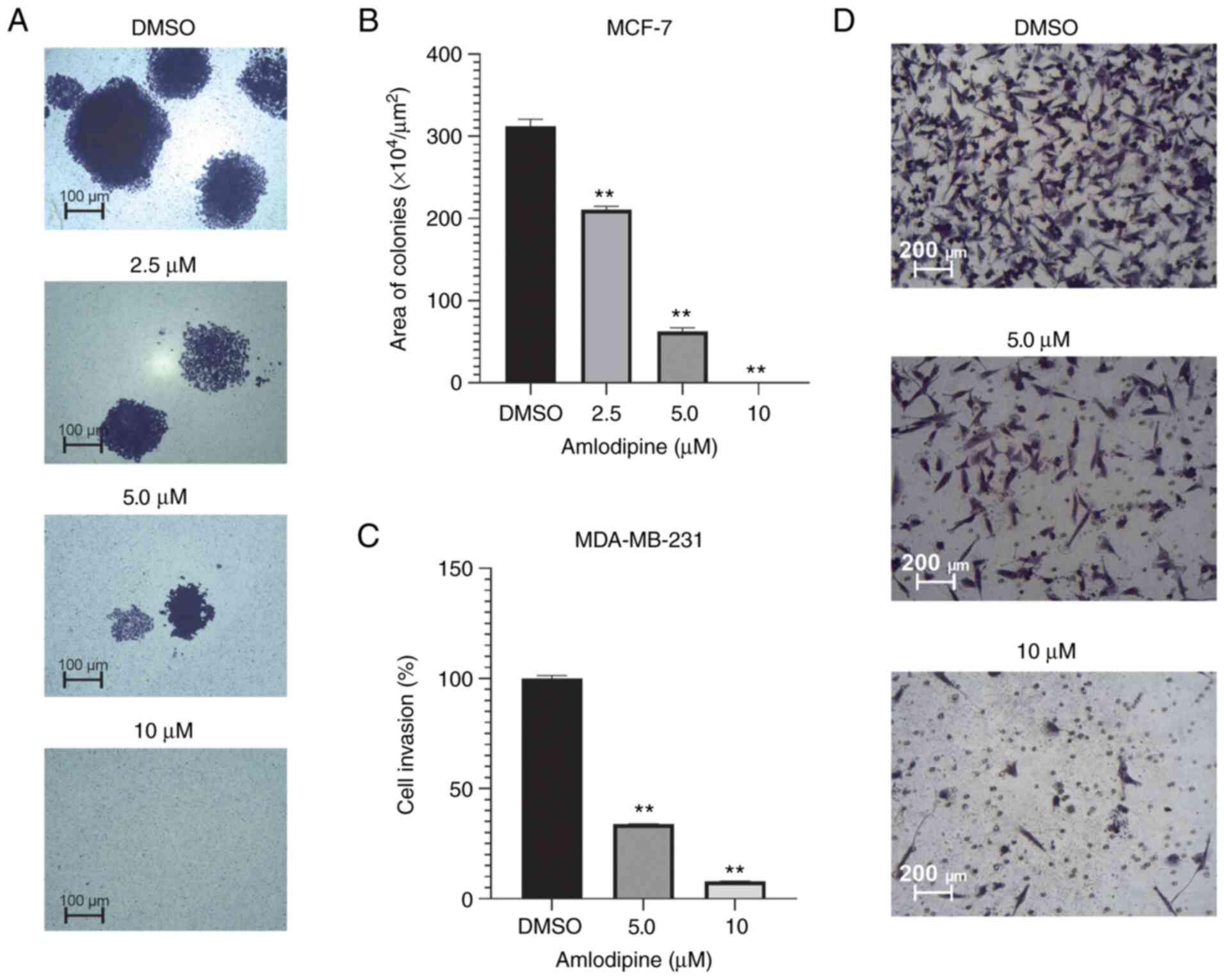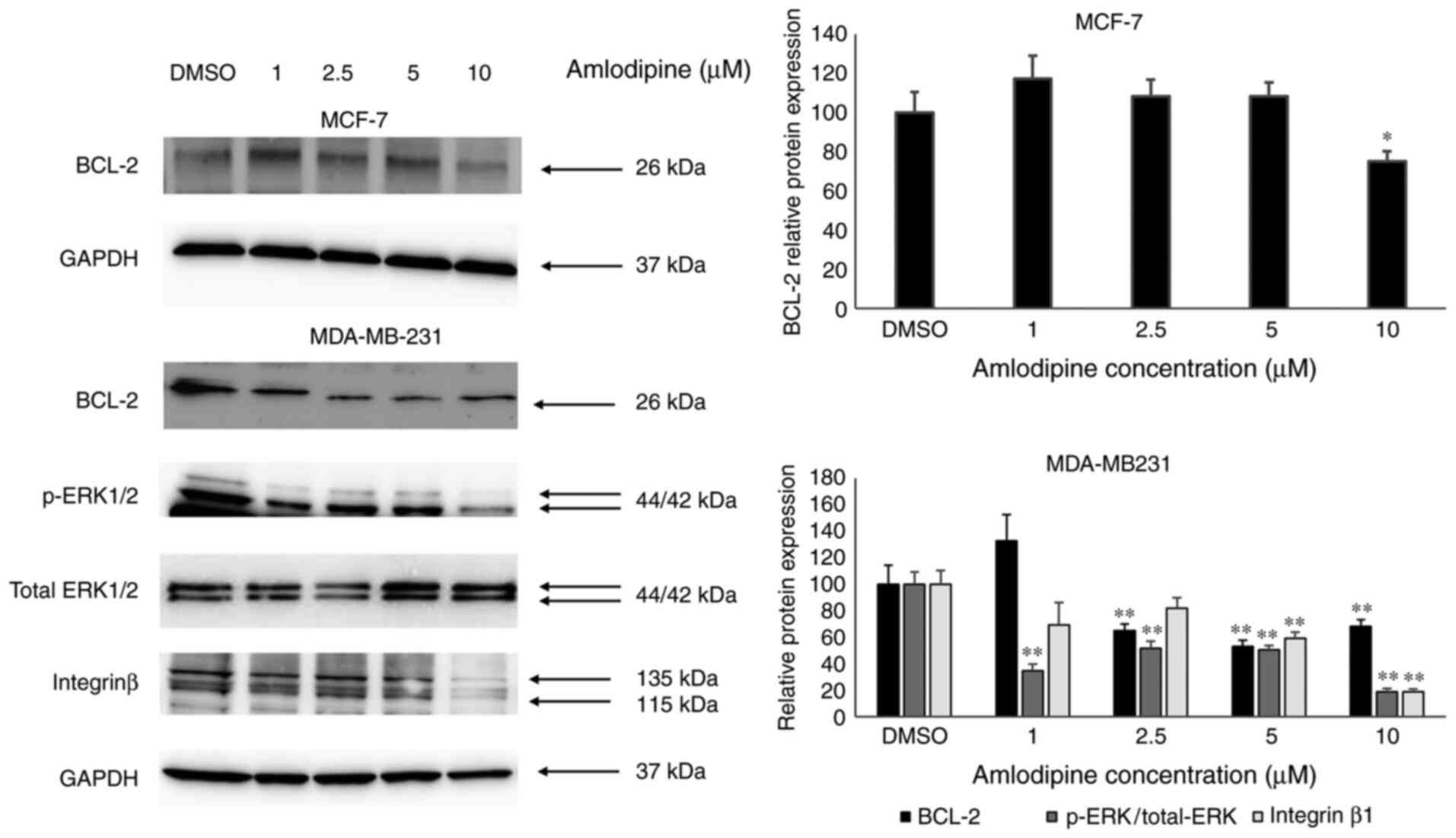|
1
|
Sung H, Ferlay J, Siegel RL, Laversanne M,
Soerjomataram I, Jemal A and Bray F: Global cancer statistics 2020:
GLOBOCAN estimates of incidence and mortality worldwide for 36
cancers in 185 countries. CA Cancer J Clin. 71:209–249.
2021.PubMed/NCBI View Article : Google Scholar
|
|
2
|
Siegel RL, Miller KD, Fuchs HE and Jemal
A: Cancer statistics, 2021. CA Cancer J Clin. 71:7–33.
2021.PubMed/NCBI View Article : Google Scholar
|
|
3
|
World Health Organization. Jordan-Global
Cancer Observatory [Fact sheet] 2020, December. Available from:
https://gco.iarc.fr/today/data/factsheets/populations/400-jordan-fact-sheets.pdf.
|
|
4
|
Seyfried TN and Huysentruyt LC: On the
origin of cancer metastasis. Crit Rev Oncog. 18:43–73.
2013.PubMed/NCBI View Article : Google Scholar
|
|
5
|
van Zijl F, Krupitza G and Mikulits W:
Initial steps of metastasis: Cell invasion and endothelial
transmigration. Mutat Res. 728:23–34. 2011.PubMed/NCBI View Article : Google Scholar
|
|
6
|
Howlader N, Noone AM, Krapcho M, Miller D,
Brest A, Yu M, Ruhl J, Tatalovich Z, Mariotto A, Lewis DR (eds), et
al: SEER cancer statistics review, 1975-2017, National Cancer
Institute. Bethesda, MD, 2020. Available from: https://seer.cancer.gov/csr/1975_2017/.
|
|
7
|
American Cancer Society. Breast cancer
facts and figures 2019-2020: American Cancer Society, 2020.
Available from: https://www.cancer.org/content/dam/cancer-org/research/cancer-facts-and-statistics/breast-cancer-facts-and-figures/breast-cancer-facts-and-figures-2019-2020.pdf.
|
|
8
|
Carrick S, Parker S, Thornton CE, Ghersi
D, Simes J and Wilcken N: Single agent versus combination
chemotherapy for metastatic breast cancer. Cochrane Database Syst
Rev: Apr 15, 2009 (Epub ahead of print). doi:
10.1002/14651858.CD003372.pub3.
|
|
9
|
Boster BL, Patel NK and Michaud LB: Breast
cancer. In: Pharmacotherapy: A Pathophysiologic Approach, 11e.
DiPiro JT, Yee GC, Posey LM, Haines ST, Nolin TD and Ellingrod V
(eds). McGraw-Hill Education, New York, NY, 2020.
|
|
10
|
Velaei K, Samadi N, Barazvan B and
Soleimani Rad J: Tumor microenvironment-mediated chemoresistance in
breast cancer. Breast. 30:92–100. 2016.PubMed/NCBI View Article : Google Scholar
|
|
11
|
Wilson LE, D'Aloisio AA, Sandler DP and
Taylor JA: Long-term use of calcium channel blocking drugs and
breast cancer risk in a prospective cohort of US and Puerto Rican
women. Breast Cancer Res. 18(61)2016.PubMed/NCBI View Article : Google Scholar
|
|
12
|
Lee AR, Seo MJ, Kim J, Lee DM, Kim IY,
Yoon MJ, Hoon H and Choi KS: Lercanidipine synergistically enhances
bortezomib cytotoxicity in cancer cells via enhanced endoplasmic
reticulum stress and mitochondrial Ca2+ overload. Int J
Mol Sci. 20(6112)2019.PubMed/NCBI View Article : Google Scholar
|
|
13
|
Alqudah MAY, Alrababah BA and Mhaidat NM:
Amlodipine inhibits cell proliferation and induces cell cycle
arrest in colorectal cancer cells. Jordan J Pharm Sci. 10:189–197.
2017.
|
|
14
|
Ji BS, He L and Liu GQ: Reversal of
p-glycoprotein-mediated multidrug resistance by CJX1, an amlodipine
derivative, in doxorubicin-resistant human myelogenous leukemia
(K562/DOX) cells. Life Sci. 77:2221–2232. 2005.PubMed/NCBI View Article : Google Scholar
|
|
15
|
Yoshida J, Ishibashi T and Nishio M:
Antitumor effects of amlodipine, a Ca2+ channel blocker,
on human epidermoid carcinoma A431 cells in vitro and in vivo. Eur
J Pharmacol. 492:103–112. 2004.PubMed/NCBI View Article : Google Scholar
|
|
16
|
Alqudah MA, Agarwal S, Al-Keilani MS,
Sibenaller ZA, Ryken TC and Assem M: NOTCH3 is a prognostic factor
that promotes glioma cell proliferation, migration and invasion via
activation of CCND1 and EGFR. PLoS One. 8(e77299)2013.PubMed/NCBI View Article : Google Scholar
|
|
17
|
Al-Oudat BA, Alqudah MA, Audat SA,
Al-Balas QA, El-Elimat T, Hassan MA, Frhat IN and Azaizeh MM:
Design, synthesis, and biologic evaluation of novel chrysin
derivatives as cytotoxic agents and caspase-3/7 activators. Drug
Des Devel Ther. 13:423–433. 2019.PubMed/NCBI View Article : Google Scholar
|
|
18
|
Siragusa M, Dall'Olio S, Fredericia PM,
Jensen M and Groesser T: Cell colony counter called CoCoNut. PLoS
One. 13(e0205823)2018.PubMed/NCBI View Article : Google Scholar
|
|
19
|
Ayoub NM, Alkhalifa AE, Ibrahim DR and
Alhusban A: Combined crizotinib and endocrine drugs inhibit
proliferation, migration, and colony formation of breast cancer
cells via downregulation of MET and estrogen receptor. Med Oncol.
38(8)2021.PubMed/NCBI View Article : Google Scholar
|
|
20
|
Ayoub NM, Al-Shami KM, Alqudah MA and
Mhaidat NM: Crizotinib, a MET inhibitor, inhibits growth,
migration, and invasion of breast cancer cells in vitro and
synergizes with chemotherapeutic agents. Onco Targets.
10:4869–4883. 2017.PubMed/NCBI View Article : Google Scholar
|
|
21
|
Alqudah MAY, Azaizeh M, Zayed A and Asaad
L: Calcium-sensing receptor antagonist NPS-2143 inhibits breast
cancer cell proliferation, migration and invasion via
downregulation of p-ERK1/2, Bcl-2 and integrin β1 and induces
caspase 3/7 activation. Adv Pharm Bull. 12:383–388. 2022.
|
|
22
|
Brentnall M, Rodriguez-Menocal L, De
Guevara RL, Cepero E and Boise LH: Caspase-9, caspase-3 and
caspase-7 have distinct roles during intrinsic apoptosis. BMC Cell
Biol. 14(32)2013.PubMed/NCBI View Article : Google Scholar
|
|
23
|
Jänicke RU: MCF-7 breast carcinoma cells
do not express caspase-3. Breast Cancer Res Treat. 117:219–221.
2009.PubMed/NCBI View Article : Google Scholar
|
|
24
|
Kottke TJ, Blajeski AL, Meng XW, Svingen
PA, Ruchaud S, Mesner PW Jr, Boerner SA, Samejima K, Henriquez NV,
Chilcote TJ, et al: Lack of correlation between caspase activation
and caspase activity assays in paclitaxel-treated MCF-7 breast
cancer cells. J Biol Chem. 277:804–815. 2002.PubMed/NCBI View Article : Google Scholar
|
|
25
|
Comşa Ş, Cîmpean AM and Raica M: The story
of MCF-7 breast cancer cell line: 40 Years of experience in
research. Anticancer Res. 35:3147–3154. 2015.PubMed/NCBI
|
|
26
|
Yamakage M and Namiki A: Calcium
channels-basic aspects of their structure, function and gene
encoding; anesthetic action on the channels-a review. Can J
Anaesth. 49:151–164. 2002.PubMed/NCBI View Article : Google Scholar
|
|
27
|
Phan NN, Wang CY, Chen CF, Sun Z, Lai MD
and Lin YC: Voltage-gated calcium channels: Novel targets for
cancer therapy. Oncol Lett. 14:2059–2074. 2017.PubMed/NCBI View Article : Google Scholar
|
|
28
|
Prevarskaya N, Skryma R and Shuba Y: Ion
channels and the hallmarks of cancer. Trends Mol Med. 16:107–121.
2010.PubMed/NCBI View Article : Google Scholar
|
|
29
|
Varghese E, Samuel SM, Sadiq Z, Kubatka P,
Liskova A, Benacka J, Pazinka P, Kruzliak P and Büsselberg D:
Anti-cancer agents in proliferation and cell death: The calcium
connection. Int J Mol Sci. 20(3017)2019.PubMed/NCBI View Article : Google Scholar
|
|
30
|
Jacquemet G, Baghirov H, Georgiadou M,
Sihto H, Peuhu E, Cettour-Janet P, He T, Perälä M, Kronqvist P,
Joensuu H and Ivaska J: L-type calcium channels regulate filopodia
stability and cancer cell invasion downstream of integrin
signalling. Nat Commun. 7(13297)2016.PubMed/NCBI View Article : Google Scholar
|
|
31
|
Kanwar N, Carmine-Simmen K, Nair R, Wang
C, Moghadas-Jafari S, Blaser H, Tran-Thanh D, Wang D, Wang P, Wang
J, et al: Amplification of a calcium channel subunit CACNG4
increases breast cancer metastasis. EBioMedicine.
52(102646)2020.PubMed/NCBI View Article : Google Scholar
|
|
32
|
Ji Y, Han Z, Shao L and Zhao Y:
Ultrasound-targeted microbubble destruction of calcium channel
subunit α 1D siRNA inhibits breast cancer via G protein-coupled
receptor 30. Oncol Rep. 36:1886–1892. 2016.PubMed/NCBI View Article : Google Scholar
|
|
33
|
Zhang GJ, Kimijima I, Tsuchiya A and Abe
R: The role of bcl-2 expression in breast carcinomas (Review).
Oncol Rep. 5:1211–1216. 1998.PubMed/NCBI View Article : Google Scholar
|
|
34
|
Pratt MA, Niu M and White D: Differential
regulation of protein expression, growth and apoptosis by natural
and synthetic retinoids. J Cell Biochem. 90:692–708.
2003.PubMed/NCBI View Article : Google Scholar
|
|
35
|
Lan L, Xinghua X, Wenjuan S and Liying D:
Effect of amlodipine on apoptosis of human breast carcinoma
MDA-MB-231 cells. J Med Coll PLA. 23:358–363. 2008.PubMed/NCBI View Article : Google Scholar
|
|
36
|
Wong BS, Chiu LY, Tu DG, Sheu GT and Chan
TT: Anticancer effects of antihypertensive L-type calcium channel
blockers on chemoresistant lung cancer cells via autophagy and
apoptosis. Cancer Manag Res. 12:1913–1927. 2020.PubMed/NCBI View Article : Google Scholar
|
|
37
|
Shiozaki A, Katsurahara K, Kudou M,
Shimizu H, Kosuga T, Ito H, Arita T, Konishi H, Komatsu S, Kubota
T, et al: Amlodipine and verapamil, voltage-gated Ca2+
channel inhibitors, suppressed the growth of gastric cancer stem
cells. Ann Surg Oncol. 28:5400–5411. 2021.PubMed/NCBI View Article : Google Scholar
|
|
38
|
Panneerpandian P, Rao DB and Ganesan K:
Calcium channel blockers lercanidipine and amlodipine inhibit
YY1/ERK/TGF-β mediated transcription and sensitize the gastric
cancer cells to doxorubicin. Toxicol In Vitro.
74(105152)2021.PubMed/NCBI View Article : Google Scholar
|
|
39
|
Li Y, Liu S, Lu F, Zhang T, Chen H, Wu S
and Zhuang H: A role of functional T-type Ca2+ channel
in hepatocellular carcinoma cell proliferation. Oncol Rep.
22:1229–1235. 2009.PubMed/NCBI View Article : Google Scholar
|
|
40
|
Lee H, Kim JW, Kim DK, Choi DK, Lee S, Yu
JH, Kwon OB, Lee J, Lee DS, Kim JH and Min SH: Calcium channels as
novel therapeutic targets for ovarian cancer stem cells. Int J Mol
Sci. 21(2327)2020.PubMed/NCBI View Article : Google Scholar
|
|
41
|
Granados K, Hüser L, Federico A, Sachindra
S, Wolff G, Hielscher T, Novak D, Madrigal-Gamboa V, Sun Q,
Vierthaler M, et al: T-type calcium channel inhibition restores
sensitivity to MAPK inhibitors in de-differentiated and adaptive
melanoma cells. Br J Cancer. 122:1023–1036. 2020.PubMed/NCBI View Article : Google Scholar
|
|
42
|
Jacquemet G, Hamidi H and Ivaska J:
Filopodia in cell adhesion, 3D migration and cancer cell invasion.
Curr Opin Cell Biol. 36:23–31. 2015.PubMed/NCBI View Article : Google Scholar
|
|
43
|
Jacquemet G, Green DM, Bridgewater RE, von
Kriegsheim A, Humphries MJ, Norman JC and Caswell PT: RCP-driven
α5β1 recycling suppresses Rac and promotes RhoA activity via the
RacGAP1-IQGAP1 complex. J Cell Biol. 202:917–935. 2013.PubMed/NCBI View Article : Google Scholar
|
|
44
|
Hou S, Isaji T, Hang Q, Im S, Fukuda T and
Gu J: Distinct effects of β1 integrin on cell proliferation and
cellular signaling in MDA-MB-231 breast cancer cells. Sci Rep.
6(18430)2016.PubMed/NCBI View Article : Google Scholar
|
|
45
|
Yin HL, Wu CC, Lin CH, Chai CY, Hou MF,
Chang SJ, Tsai HP, Hung WC, Pan MR and Luo CW: β1 integrin as a
prognostic and predictive marker in triple-negative breast cancer.
Int J Mol Sci. 17(1432)2016.PubMed/NCBI View Article : Google Scholar
|
|
46
|
Thibaudeau L, Taubenberger AV,
Theodoropoulos C, Holzapfel BM, Ramuz O, Straub M and Hutmacher DW:
New mechanistic insights of integrin β1 in breast cancer bone
colonization. Oncotarget. 6:332–344. 2015.PubMed/NCBI View Article : Google Scholar
|

















